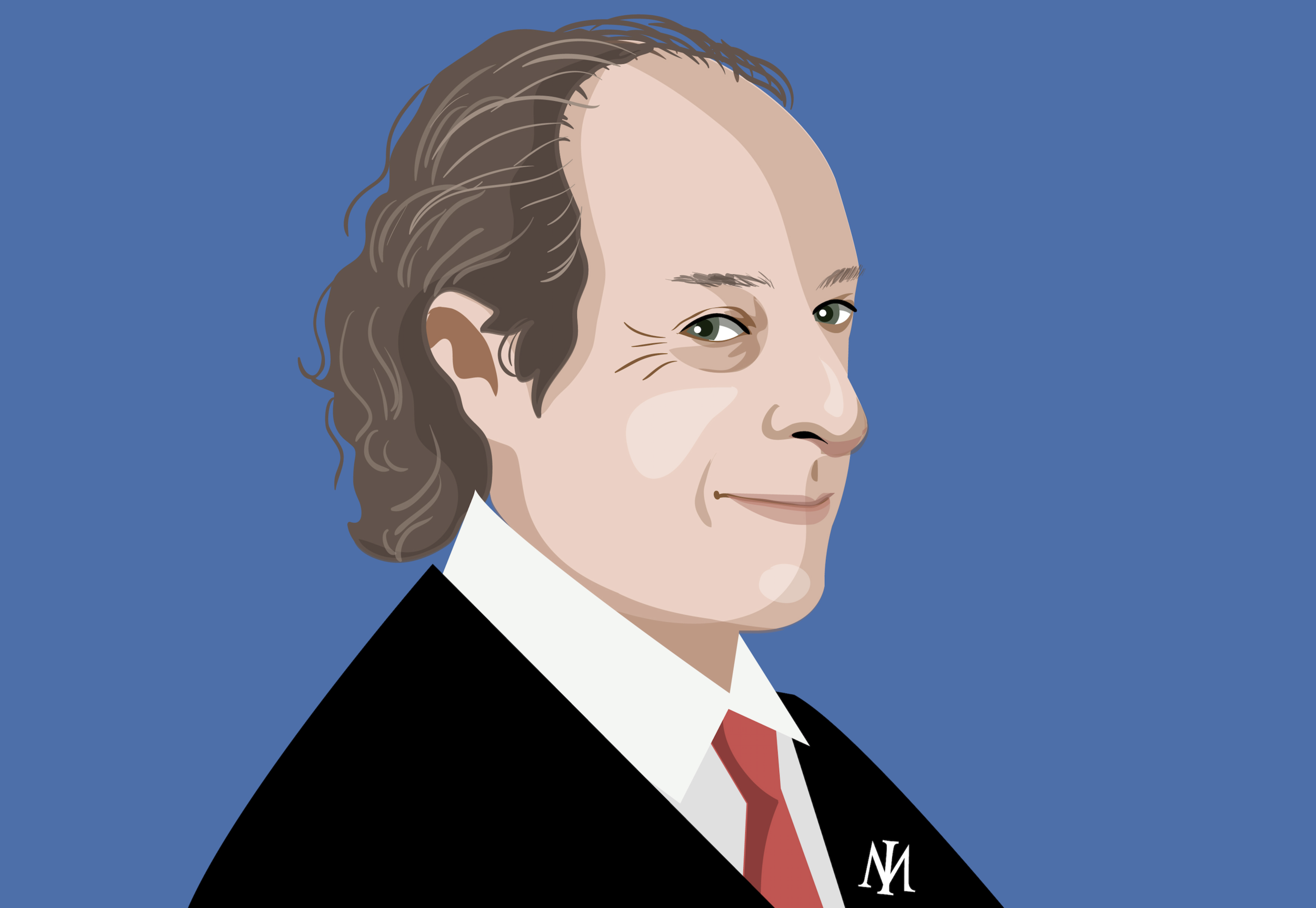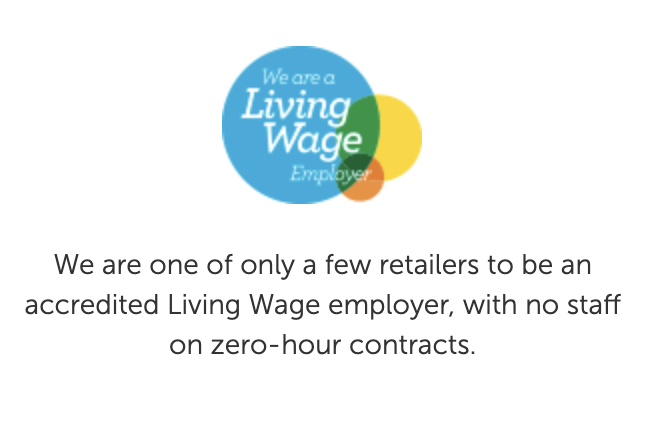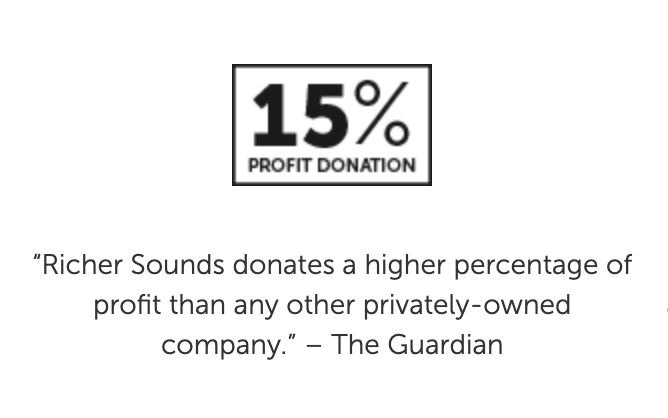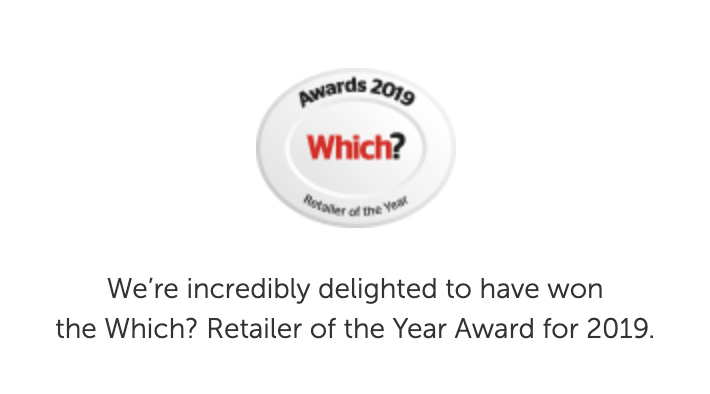Retailing is hard. Staying on top of the industry for decades is even harder. Particularly when the products you sell are technology based and always changing. Which begs the question, how did a small UK retailer selling Hi-Fi components come to hold the World Record for sales per square foot of any retailer in the world for over twenty five years?
The answer to that question is anything but conventional. Most things about Richer Sounds, the business that holds the record, are unconventional too. In 1978, a nineteen year old hi-fi enthusiast named Julian Richer, opened his first shop on London Bridge Walk. Today that business, Richer Sounds, comprises a successful chain of 52 retail hi-fi stores.
I came across Richer Sounds in a recent article in the Economist titled ‘From Rags to Richer - A Business Success Story Built on Treating People Well.’ Treating people well is a touchstone of Mr Richer’s philosophy. So much so, in May 2019, Mr. Richer handed control of the business over to an Employee Owned Trust, which resulted in Richer Sounds now being controlled and majority owned by the employees.
Mr Richer is an atypical entrepreneur who shared his business philosophy in a book titled ‘The Ethical Capitalist’.
Mr Richer’s approach to business was largely influenced by another book, ‘In Search of Excellence - Lessons from America’s Best Run Companies’ published in 1982 by two McKinsey alumni. The book has been accredited by Warren Buffett as “A landmark book, without question the most important and useful book on what makes organisations effective ever written.” [n.b. an excellent book, which will feature in an upcoming post].
“What really transformed my thinking was reading Tom Peters’ and Robert Waterman’s classic business text ‘In Search of Excellence’, which I first encountered over thirty years ago. The authors identified various factors that they believed made companies successful. Key among them were how they treated their employees and customers. I began to apply ‘In Search of Excellence’ ideas to my own business and found they really produced results.” Julian Richer
Not surprisingly, many of the unconventional attributes of Julian Richer’s business unify many of the other great businesses we have previously covered.
I’ve included some of my favourite extracts from Mr Richer’s book below.
Ethical Capitalism
“My own experiences in the business world suggest that an ethical approach, far from being a potential barrier to profits, is actually the secret to success.”
“Good companies survive. Unethical companies go to the wall.”
“Ethical capitalism is about doing our best to ensure that everybody we work with, from staff to customers to the wider community, feels their lives, and their happiness, are improved by what we offer - both materially and emotionally.”
“What do I mean by ethical? I mean treating staff, customers and suppliers honestly, open and respectfully. I mean taking responsibility for our actions, owning up when things go wrong and setting out to put them right. Seeing ourselves as an integral part of society and paying our dues - and taxes - accordingly. By following this approach I believe we can create a virtuous circle for ourselves: not only can we sleep better at night, but a fair and honest approach to customers and staff leads to a huge competitive advantage that in turn reinforces the need to be fair and honest.”
“The ethical approach must be built into the way the business operates every day.”
“Ethically run businesses are better businesses - there are huge competitive advantages to be gained from creating an honest and open culture, from paying a fair wage to ensuring customers are well treated, and so on.”
“The ruthless pursuit of shareholder value, however, is not actually a company’s legal obligation. What’s more, it is downright dangerous. If managers believe that their duty is only to their shareholders - and not at all to society more generally - they will be prepared to make socially harmful decisions in pursuit of immediate gain.”
“Conscienceless capitalism doesn’t work even for shareholders.”
Source: Richer Sounds [https://www.richersounds.com/information/the_richer_way]
Short Termism
“If you’re directing all your attention to the bottom line for the next quarter, you’re not going to make decisions that serve the long-term interest of your company. Sadly, ‘short-termism’ is now built into the mindset of managers.”
Culture
“Organisations that create cultures based on fairness, honesty and respect reap the rewards. They acquire motivated, hard-working staff who are there for the long haul. It’s no coincidence that many of the world’s most successful companies are those that are also rated as the best to work for (Which is, essentially, the message of ‘In Search of Excellence’.)”
“All the evidence suggests that a bad culture leads to bad behaviour regardless of the business sector in which it is to be found.”
“Fraud and theft are hallmarks of a poor company culture, but they’re not the only ones. Staff turnover and absenteeism are also crucial indicators. Some staff churn is inevitable as people move away or are offered a better or preferable job elsewhere. But high levels of staff turnover are always a sign that something is fundamentally wrong.”
“Businesses may think high staff turnover is not a problem, as long as there is a ready supply of new applicants. But in reality, a constantly changing workforce is a big drag on productivity. Moreover it eats into profits.”
People
“It’s all about people. The key to a successful business lies in managing and motivating the workforce so they give their best to the job.”
“Our focus on treating our staff fairly has given us staying power.”
Share the Success
“To make sure that it’s not just those on the shop floor who benefit from success, we give all our central departments a profit share at the end of the financial year.”
Reciprocation
“I have found that by treating people well, they appreciate it and will almost always reciprocate and treat my business well.”
“What goes around comes around. I always try to deal with people, not only with honestly and fairness, but with generosity too.”
“All the evidence suggests that if employees are badly treated, the company as a whole will suffer: it will attract poor-quality, often unmotivated employees, who may well defraud it or take extended leaves of absence. Yet some companies are prepared to risk all this for short-term gain and profit, not recognising that in the process they are racking up costs and running the risk of forfeiting future success.”
“Disaffected staff offer bad service, and bad service drives away customers. Contented staff, by contrast, encourage repeat business. I’ve invariably found that when people are treated well, the tendency is for them to reciprocate - by working hard, and contributing their enthusiasm and ideas. They feel motivated, morale rises, and productivity and profitability improves as a result.”
Win-Win
“Every transaction should be a reciprocal arrangement that benefits both the seller and the purchaser.”
“In a well run-organisation, the enablers [ie. supply chain drivers, cleaners, lawyers, bankers, external auditors, suppliers etc] are regarded as an integral part of the whole. It is recognised they are essential to the enterprises success as the other two sides of the business triangle [staff & customers]. In badly run concerns, they’re often the people who are most neglected and worst treated.”
“While we negotiate hard, we always make sure we end meetings on good terms with our manufacturers. We make sure we pay on time; sometimes we offer early payment, particularly if we know they’re having a problem with cash flow.”
“At Richer Sounds we’ve actually ended up paying our cleaning agency extra in order to ensure that on our premises their employees earn the Living Wage.”
The Customer
“If a customer can’t find what they want in one of our shops, or aren’t completely sure about the suitability of what is on offer, I don’t want to make a sale. Our trading philosophy as well as our incentive scheme is based on that principle.”
“We should be aiming to keep a customer for life, not for one transaction.”
“Ultimately, I do believe that companies that fail to serve their customers well do not last.”
Empower Staff
“Sales colleagues have the authority to make a decision then and there, rather than having to refer to the manager or head office and so risk a dissatisfied customer feeling they are being fobbed off.”
Incentives
“When incentives are badly constructed, the outcomes will be bad, too.”
“Rewarding people simply for carrying out a transaction, regardless of the wisdom of that transaction, is a recipe for disaster.”
More Than Wages
“In a good company, what motivates people to turn up for work each day is much more than the amount in their wage packet. Their job satisfaction is much more likely to derive from getting on well with their colleagues, feeling part of a team and seeing customers happy.”
“The notion that how you treat people is central to how you conduct your business stayed with me as I built my company and learnt from my mistakes.”
“Of course businesses need to be profitable, or else they will go bust and jobs will be lost. But the pursuit of profit before everything is not the key to business success. If profits are only gained by paying employees and suppliers the bare minimum and giving customers a bad deal, in the long run the business won’t survive.”
Ethics
“The recent global financial crisis - at bottom, this was not about a failure of a particular economic doctrine or approach but of ethics.”
Hard Work & Constant Attention
“Creating an ethically minded company is not something that’s achieved the moment a list of company values has been put together. It’s a process that involves very hard work and requires constant attention. It also has to permeate every action that a company takes, which is why for me this process of creating an ethical company begins right at the very beginning of the job cycle - with the recruitment ad - and not only continues through recruitment, the setting of pay and conditions, ongoing staff welfare, and so on, but also requires regular maintenance and improvement. If one link of this complex chain is weak, or is allowed to become weak, ultimately the chain will break.”
Business Ecosystem
“A business is like a very delicate ecosystem. Every component part of it counts and every part has an impact on everything else. People often ask me whether ultimately it’s the employee or the customer who is more important to commercial success. To my mind it’s not a valid question. In the business ecosystem each element has a vital role and each element is connected to all the others. That’s why creating the right overarching culture is so crucial. Without it, things fall apart.”
Staffing
“If we were simply box-ticking, the logical thing for us to do as retailers would be to seek out red-hot salespeople. But we don’t. The most important quality we look for in a recruit is friendliness: we need staff who can not only talk to customers, but who can listen to what they say. Passion and enthusiasm are important too. We like applicants who are enthusiastic about the products we sell, about dealing with customers, and about life in general. Overall, our policy is to hire for personality and train for skill.”
“No-one is ever hired without having had a trial day.”
“We want to recruit for the long term. We want people who want to be with us. We seek people who are career orientated and who are keen to work their way up. Indeed we do our damnedest to recruit from within. It’s no coincidence that seven out of nine of our directors started working in the shops.”
Wages
“Low wages have bad economic effects. They create a self-perpetuating system in which poor pay leads to low skills, low morale, low productivity, lack of training and high labour turnover, leading back to poor pay.”
“If the people at the top are rewarding themselves while holding pay rises for others at bay, morale suffers.”
“The bonus culture can lead to poor decisions, as senior executives agree on business strategies or company mergers that flatter the share price but damage the long term health of the company.”
Community, Society and Government
“Even the supposedly narrow world of business, with its focus on profitability and the bottom line, relies heavily on the community. It may look to individuals for its customers, but it needs society to provide its employees and to create and maintain the infrastructure without which it cannot possibly survive.”
“Essential commercial activity is possible thanks only to government spending. Roads and railways are the arteries of business. When someone tells me they’re a ‘self-made' millionaire, I’m tempted to ask how they got into work that morning.”
“From maintaining the money supply and issuing banknotes, right through to creating the legal basis for contracts and private property, the state is in the background of every business transaction.”
“No business is an island. However much successful people like to think they are self-made, they would be nowhere without the society that surrounds them, and the support, security and economic stability that society provides.”
“There’s one very obvious way in which businesses can give back to the community. The problem is, they usually put a lot of effort into finding ways to avoid it. I’m talking of course, about tax.”
“Many business leaders have it fixed in their minds that taxation is somehow bad for business (let alone themselves), that they not only fight to have it reduced but believe it’s perfectly legitimate to aggressively avoid it.”
“I would urge businesses to allocate a percentage of their profits to charity - and if they do that, a larger percentage. I give 15% of my company profits to charity, along with a lot of my time.”
Seek Feedback
“We include a short feedback card with every receipt (the incentive to fill it in being entry into a monthly prize draw)”
“[Feedback cards are studied at our quarterly Customer Service Group meetings, helping] us trouble-shoot, plan and refine. They also provide us with an invaluable window into the future, since they often give the first indication that customers’ tastes might be changing and that they might be looking for something new or different.”
“If there’s a complaint, I deal with it personally.”
Repeat Customers
“According to a US study carried out by SumAll in 2013, somewhere between 25% and 40% of the total revenues of the most stable businesses they examined came from returning customers. These customers were also most likely to be the ones who helped sustain the companies they supported in difficult economic times: ‘Businesses with 40% repeat customers generated nearly 50% more revenue than similar businesses with only 10% repeat customers’, the study suggested. It therefore seems totally bizarre to me that some companies would think it clever practice to go out of their way to alienate existing customers. Why would an insurance company offer cover at special price to attract a new customer and yet increase premiums for the same package to an existing one? Why would a bank or phone company offer preferential rates only to the people they don’t already serve? It’s baffling. I know they’re relying on customer inertia, but I suspect that as people become more savvy and it becomes ever easier to find out what rival deals there are out there, customers will defect from such concerns in steadily increasing numbers.”
Capitalism
“I am an absolute believer in capitalism. I think it is the only economic system humans have so far come up with that offers the real promise of personal prosperity and well-being.”
“In societies where free enterprise is stifled, where the system is controlled by the state, or where markets are dominated by corrupt monopolies or oligopolies, the consumer has tended to suffer. Choice dwindles. The quality of products and services sinks lower and lower.”
“Social inequality is actually bad for capitalism. For businesses to thrive, we need people to be in secure jobs and decent homes, able to spend confidently. They should not be condemned to a low wage economy.”
Summary
Julian Richer’s business is a long term success story. He understands business is about people and the practices he implemented share many commonalities with the other great businesses we’ve studied. Many are the familiar mental models covered in previous posts; the power of reciprocation, the importance of culture, the need for a long-term view, the adoption of a win-win mindset. They tend to be qualitative in nature, you won’t necessarily find them in a spreadsheet.
Julian Richer learnt from other great businesses that had come before. He applied those lessons to his own business and turned it into a phenomenal success. He did it without compromising on staff, suppliers or the community.
Studying, understanding and identifying the factors that contributed to the success of Julian Richer’s business can help us identify other potential success stories. And that seems a pretty good recipe for getting Richer.
Source:
‘The Ethical Capitalist’ - Julian Richer. 2018. Penguin Random House.
‘From Rags to Richer - A Business Success Story Built on Treating People Well.’ -The Economist
Follow us on Twitter: @mastersinvest
TERMS OF USE: DISCLAIMER








